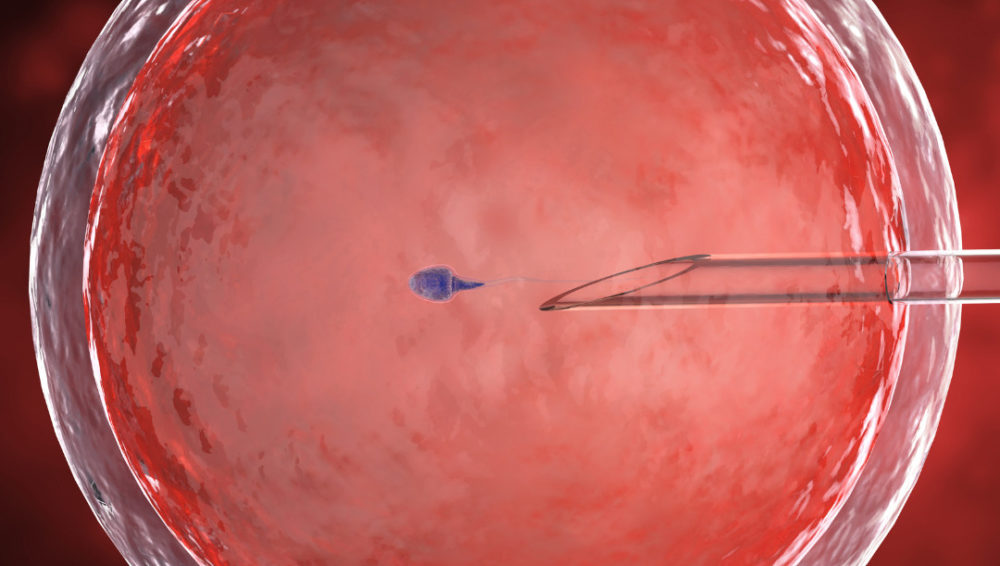Getting pregnant with an ICSI treatment
Everything you need to know about an advanced fertility treatment that solves some of the issues of a traditional IVF.

Everything you need to know about an advanced fertility treatment that solves some of the issues of a traditional IVF.
Intracytoplasmic sperm injection (ICSI) is a fertility method in which sperm is directly injected into a mature egg to achieve fertilization.
Reasons to do ICSI
While IVF relies on the sperm’s ability to penetrate the egg for fertilization to occur, an ICSI procedure injects the sperm directly into the egg. This increases the fertilization rate by as much as 80%, which is why parents often move on to ICSI when traditional IVF fails. Also, ICSI is particularly recommended if the father has an extremely low sperm count or poor sperm health.
Process of ICSI
ICSI is the same as IVF except for the fertilization part where sperm gets help in penetrating the egg for fertilization. Here are the steps of an ICSI cycle
- Body Preparation: The mother takes fertility medication for a few months to help the ovaries produce more eggs. After that, there will be several visits for ultrasound and blood tests to monitor the hormone levels and eggs count.
- Egg retrieval and sperm collection: Once eggs mature, the doctor will use a small tube with a suction device connected at the end to retrieve them from the follicles. Father’s sperm is obtained from ejaculation, but sometimes, it might be necessary to surgically retrieve sperm from the father if ejaculation can not be achieved naturally.
- Fertilization: Collected sperm and egg samples are examined to look for the healthiest sperms and most mature eggs for fertilization — only one sperm is chosen to be injected directly into a mature egg on a petri dish.
- Embryo transfer: About 3 – 5 days after fertilization, fertilized eggs that grew into embryos will be selected to put back into your uterus. One or more embryos will be implanted depending on the decision made by both patient and the doctor.
- The waiting stage: After embryo transfer, the mother can go back to everyday routines. For the next 6-8 weeks or so, the mother is placed on medications that increase progesterone hormones to help the embryo survive in the womb. ICSI is successful if the embryo attaches itself to the uterus lining and the mother becomes pregnant. If your first ICSI is not successful, you can do another cycle after one month or as advised by your doctor.
Risks
ICSI has similar risks as IVF, but because it’s a more individualized method, there are a few more risks you should know:
- Egg damage: The penetration of a needle into the egg for sperm injection can damage or cause the egg to break — the risk of this happening is about 5%.
- Passed on infertility problem: Because ICSI helps an otherwise less healthy sperm from a father with possible hereditary fertility problems in fertilizing a mature egg, this male infertility is sometimes passed on to the offspring.
Benefits
Added benefits of this targeted fertility method include:
- Fertilization success: Direct injection of sperm increases successful fertilization from normal IVF. In situations where preserved eggs from previous IVF are harder for sperm to naturally penetrate, or frozen sperm is no longer healthy enough to penetrate the egg, ICSI can help with fertilization.
- Testicular sperm extraction (TESE): In combination with ICSI, TESE can help men who may have abnormalities in their reproductive system. ICSI increases the chances of achieving fertilization with the retrieved sperm.
Success rate by age per cycle (estimates):
- 29% for women aged under 35
- 23% for women aged between 35-37
- 9% for women aged between 40-42
- 3% for women aged between 43-44
Because ICSI is part of IVF, their success rates are closely tied. However, ICSI increases the chances of the sperm fertilizing the egg. So, IVF sessions that previously yielded low embryos from implantation, can have a higher success rate with the help of ICSI. Studies have shown that doing 3 cycles of IVF increases the chances of a successful pregnancy to 50%.
Verified:
Dr. Wanwadee Sapmee Panyakat (OB-GYN), license no. 41208 (1 April 2023)



